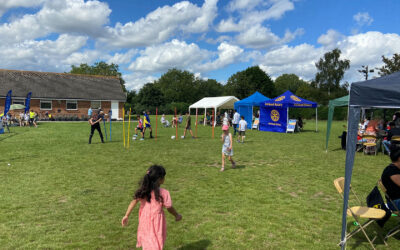As the war in Ukraine has prolonged and intensified, the medical needs of the people still in the country have become increasingly complex.
Despite the large numbers of injuries, fear of attacks on medical facilities, supply shortages, internal migration and displacement of medical professionals, Ukraine’s health sector has remained remarkably resilient.
Attacks on power supplies and other key provisions, such as water, have added further danger.
According to Ukraine’s Ministry of Health, between February and August 2022, almost 1,000 healthcare facilities were destroyed or damaged.
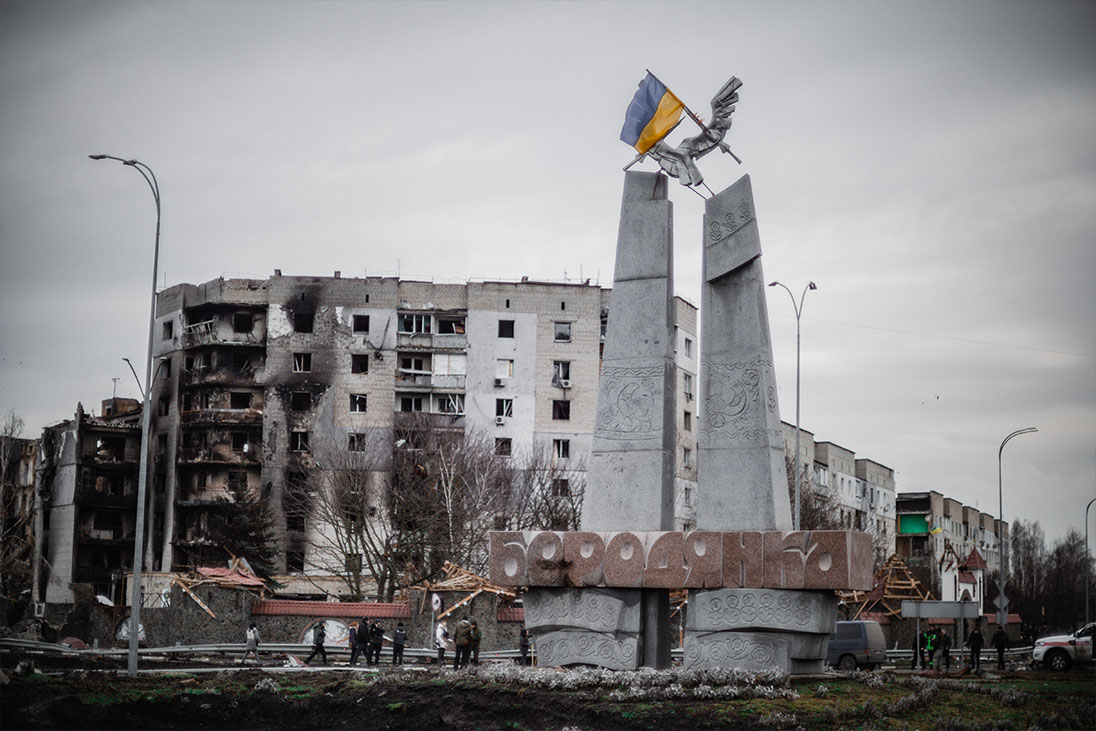

The war in Ukraine has caused mass destruction to the country’s infrastructure, with almost 1,000 healthcare facilities said to have been destroyed in the first six months of the war.
Dr John Philip, a member of Newbury Rotary, has been Chair of the Rotary Fellowship of Healthcare Professionals since 2010. Fellowships connect Rotary members across the world with shared skills, interests and expertise, often to implement humanitarian projects.
Since the war broke out in February 2022 John, a surgeon by profession, has been coordinating large scale fundraising and humanitarian efforts in support of Ukraine, working with Rotary GB&I Ukraine Crisis Taskforce through their regular bulletins to Rotary clubs and districts.
What the Fellowship has achieved since war broke out in Ukraine is truly staggering. In total, they have raised more than £500,000, much of which has come from the generosity of Rotary clubs and their communities across Great Britain and Ireland.
Those funds have supplied a huge range of goods and emergency medical aid, including 20,000 tourniquets, specialist battery-powered head torches (so surgeons can continue to perform operations) and £120,000 worth of orthopaedic instruments.
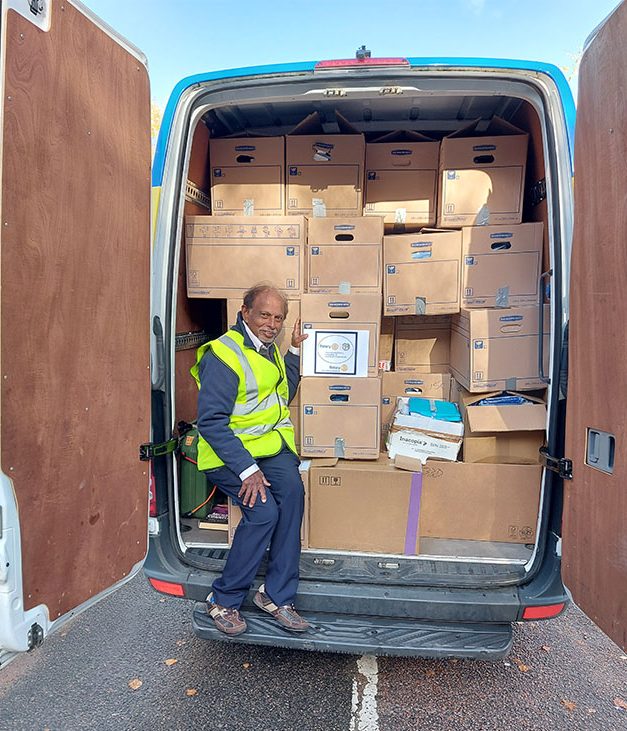

Dr John Philip, Chair of the Rotary Fellowship of Healthcare Professionals has been coordinating humanitarian efforts since the war began.
In recent months, John has been focused on a new programme supporting mothers and new-born babies.
“All patients needing medical care, including heart, cancer and mental health patients, are victims of the war. Mums and new-borns are also in need and deserving of urgent help.” John explained.
“The Fellowship has continued to selectively offer medical aid, ensuring that it is focussed, meets priority needs and always achieves value for money. This approach means there are measurable outcomes to each programme.
“Several months ago, I became concerned about the status of maternity care in Ukraine. I was surprised to learn that this was an area not in the list of priorities for many big humanitarian agencies.
“However, preliminary discussions with colleagues revealed a worrying picture.”
John, in collaboration with a Scottish charity Maternity and Childhealth Advocacy International (MCAI), made connections with 37 hospitals in Ukraine, who shared data confirming that the war was having a wide-ranging detrimental effect on antenatal and maternity care.
Women have been forced to give birth away from hospitals, in cold conditions, basements and even subway stations where crowds of people are escaping shelling without electricity or running water.
Around 16% of mothers have who gave birth between January and July 2022 were identified as ‘internally displaced’.
Women have been forced to give birth away from hospitals, in cold conditions, basements and even subway stations where crowds of people are escaping shelling.”
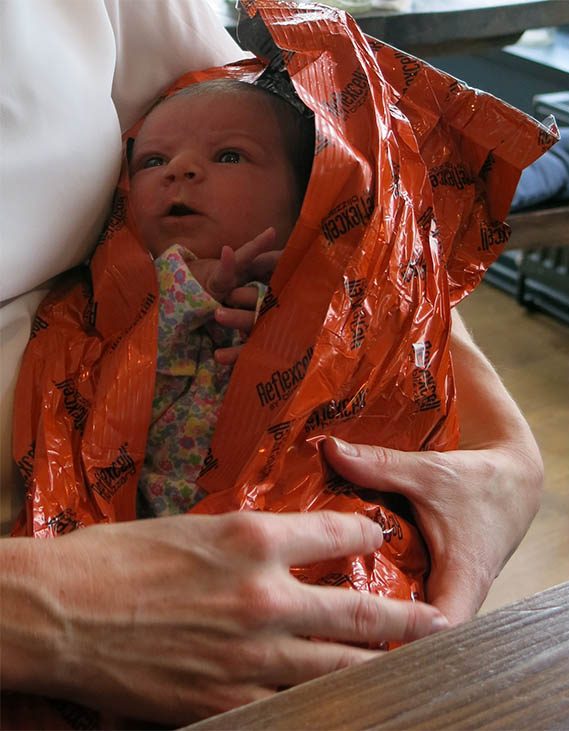

The Fellowship has also funded insulating wraps for new-borns, which help to maintain core body temperature, as well as £360,000 of other medical equipment.
However, the starkest figure of all for John was the percentage of new-borns suffering oxygen deprivation, known as birth asphyxia, in the first few critical moments of life.
There are many reasons why a baby may suffer oxygen starvation at birth. Whatever the cause, its consequences can be very serious.
The incidence of perinatal asphyxia is about two per 1000 births in developed countries.
In the six months since the war began, the reported incidence of new-borns with oxygen deprivation in Ukraine was at 2.6%.
Although the figures may not be directly comparable the corresponding figure in developed countries is around 0.2% suggesting in Ukraine a more than 10-fold increase.
“The first breath of a new-born infant, often with a whimpering cry, is magical. Almost always this is an amazing moment, but those moments can appear long.
“Each tick of the clock when the baby does not spontaneously breathe raises concern. If the baby’s breath is delayed, the consequences can be very serious. Oxygen deprivation has the potential of causing long term physical or mental disability.”
In the six months since the war began, the percentage of new-borns with oxygen deprivation in Ukraine was at 2.6%, a more than 10-fold increase .”
The latest project which the Fellowship has facilitated is a £95,000 programme supporting 30,000 pregnant women to reduce the incidence of maternal and neonatal complications, in collaboration with MCAI and professional groups in Ukraine.
It is the first of its kind in the country.
Under severe stress, the possibility of babies developing abnormally is increased significantly. The key part of the programme is enabling women in labour to monitor their baby’s heartbeat using handheld, battery-operated scanners.
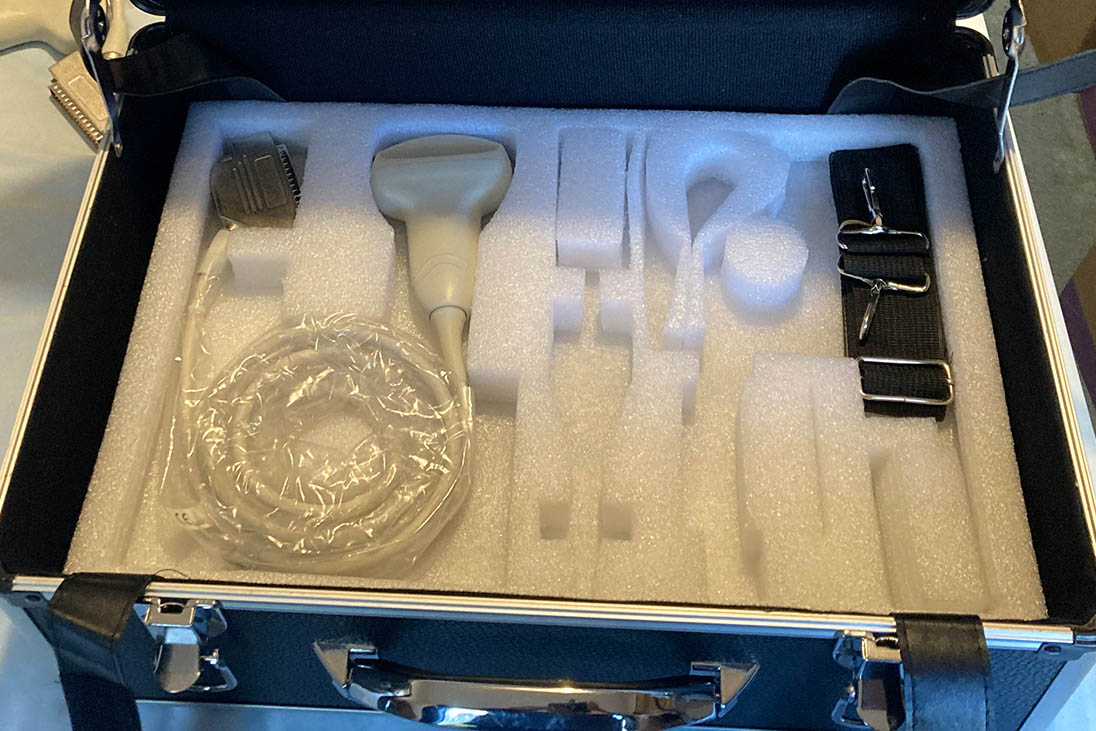

Battery-operated scanners are enabling women in labour to monitor their baby’s heartbeat and detect irregularities.
“Mothers monitoring the welfare of their own babies are remarkably astute in detecting potential danger signs, which is helped by a pictorial chart.
“When intervention is required, specialists are alerted at an early stage.”
As well as providing the heartbeat scanners, devices called KIWI vacuum pumps, drugs and testing kits have also been supplied to the 37 Ukrainian hospitals involved in the programme.
“These supplies assist in delivering babies safely, reduce the risk of haemorrhage and measure the oxygenation of the babies.”
Not content with coordinating efforts and fundraising, John was also part of a three-person convoy who recently travelled 1,350 miles from the UK to the Poland-Ukrainian border to deliver the 120 boxes of medical equipment to colleagues in Ukraine.
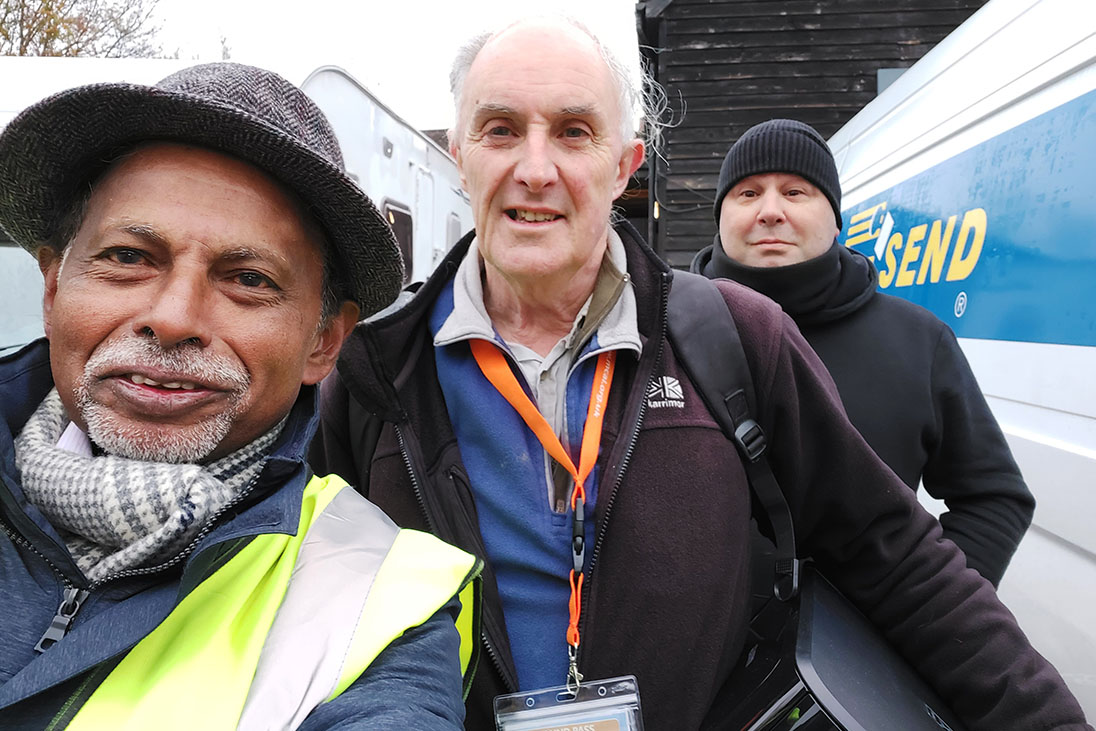

John, left, and two colleagues undertook the journey from the UK to the Polish-Ukraine border.
“I felt compelled to make this journey. With the incredible donations we’ve received from across the UK and Ireland, I felt I could not simply rely on someone else to take responsibility to ensure that the supplies reached Ukraine.
“It was also so important to get these boxes to hospitals in Ukraine with speed and before the onset of winter.”
“What we have achieved so far can only be described as Rotary magic.”
As the war conditions have continued to deteriorate since initial data was collected, John suspects that the number of new-borns with birth asphyxia as well as other complications, in the second 6 months may be higher than the figures from the first 6 months.
He is now appealing for international support and collaboration with specialists in Ukraine to ensure that mothers and new-born babies do not become innocent victims of this cruel war.
He has launched a programme to supply Kangaroo Mother Care (KMC) wraps and hats for vulnerable new born babies. KMC would help skin-skin-care which has been proven to increase the baby’s survival chance.
John says: “These babies of the war are innocent victims. We must do everything possible to increase the chance of their survival. They are the future of the country.”
For more information on the Rotary Fellowship of Healthcare Professionals, and to support their work, visit their website.










